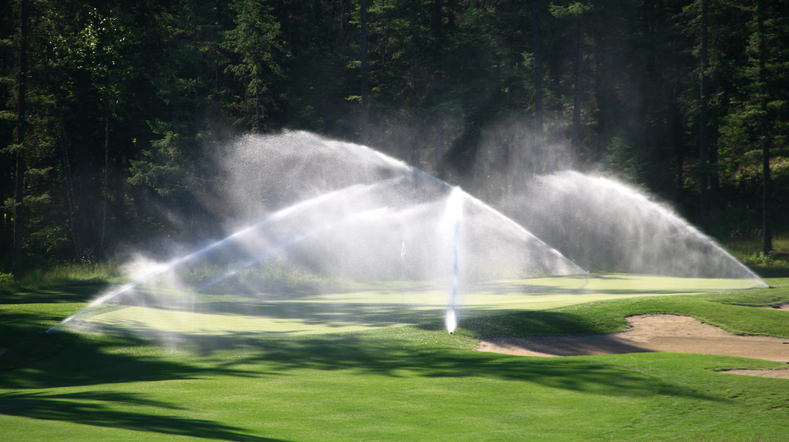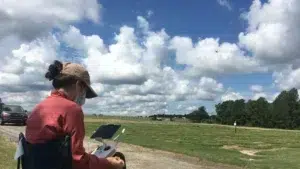The Turfgrass Water Conservation Alliance (TWCA) is leading the charge toward more sustainable turfgrass management by certifying grasses that use significantly less water while maintaining high performance. Its primary mission is to identify and certify grasses that use significantly less water while maintaining high performance in terms of playability, aesthetics, and overall health.
Highlights:
- Comprehensive Testing and Certification
TWCA conducts rigorous, scientifically controlled trials across various regions to identify turfgrass varieties that truly excel in water conservation. These trials are often held under rainout shelters, which are structures designed to simulate drought conditions by preventing rainfall from reaching the test plots. By withholding water, researchers can measure the ability of different grasses to maintain green coverage, withstand drought, and recover after re-watering.
During these trials, the grasses are monitored through a process that includes digital imaging and software analysis to quantify how much green remains in the turf under stress. This ensures that the certification process is both data-driven and objective. Only varieties that demonstrate superior drought tolerance and recovery across multiple locations and seasons are awarded the TWCA certification.
- Sustainability Focus
The TWCA’s work aligns with growing environmental concerns about water usage, particularly in regions where water resources are becoming scarcer. Turfgrass, especially in the context of golf courses and home lawns, can be a significant consumer of water. By promoting varieties that require less irrigation, TWCA helps reduce the overall water footprint of the turfgrass industry. The program is also relevant for homeowners and municipalities, where water restrictions during dry seasons are becoming more common. TWCA-certified grasses can help homeowners maintain attractive lawns without the need for excessive watering, contributing to broader water conservation efforts. - Industry Collaboration
The TWCA is supported by a coalition of turfgrass breeders, researchers, seed companies, and turf managers who are committed to improving the environmental sustainability of turfgrass systems. This collaboration ensures that the research, breeding, and practical application of water-efficient varieties remain a priority. - Tangible Impact
For the golf industry, TWCA-certified varieties are invaluable. Golf courses, which are often under scrutiny for their water usage, benefit from grasses that can reduce irrigation needs while still delivering the performance required for championship play. The certification helps golf course superintendents like Keith Wood make informed decisions about which varieties to use, ensuring that their sustainable and high-performing courses.
In addition to water savings, TWCA-certified varieties often exhibit other beneficial traits such as better resistance to heat, pests, and diseases, further reducing the need for inputs like pesticides and fertilizers.
TWCA trials are conducted in various locations across the United States and Canada to account for different environmental conditions, including soil types, climate, and regional water availability. The goal is to provide data that can be generalized across diverse growing conditions, ensuring that TWCA-certified grasses can perform well in a variety of settings, from residential lawns to professional sports fields and golf courses.
The research results not only benefit the turfgrass industry but also influence policy and standards for water conservation in landscaping and urban planning. By creating a reliable certification system, TWCA contributes to setting benchmarks for water-efficient turfgrass in public and private spaces.
The TWCA represents a major step forward in sustainable turfgrass management, particularly in addressing the global challenge of water scarcity. By identifying and promoting grasses that require less water, it helps create a more sustainable future for the turfgrass industry while supporting environmental stewardship.













